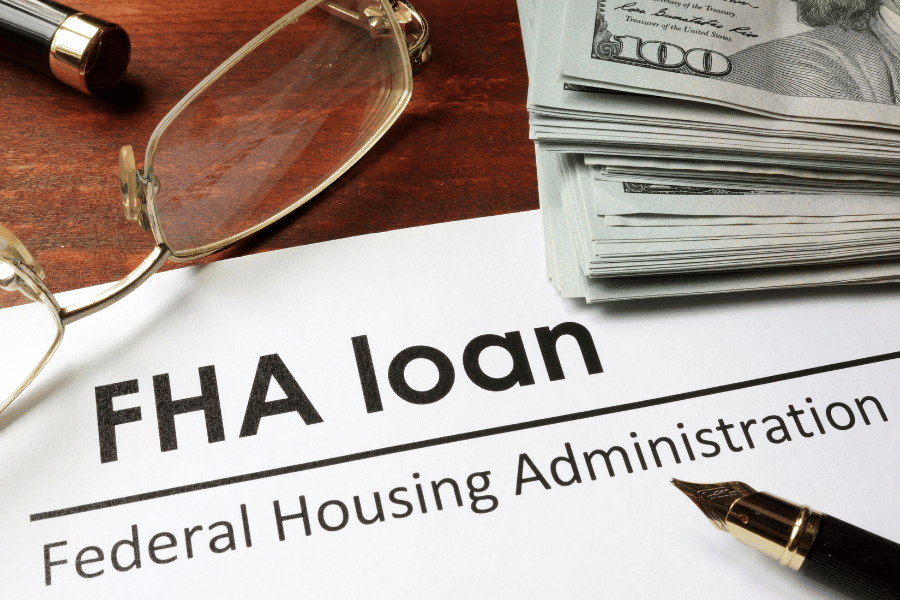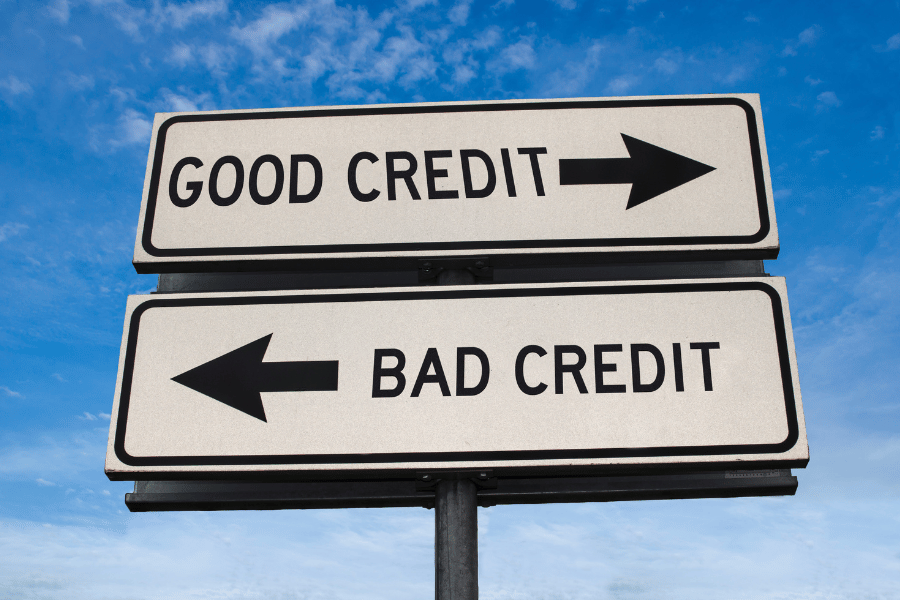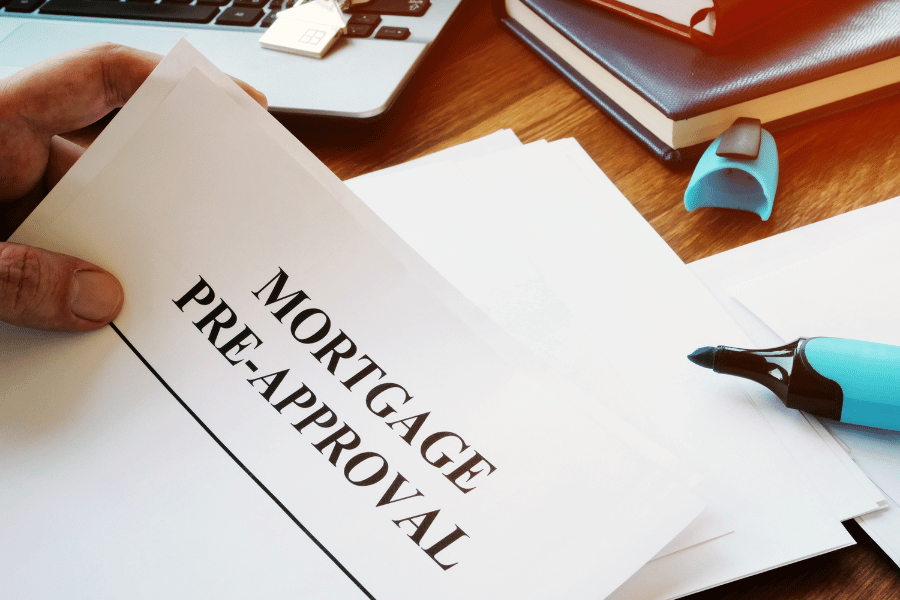FHA Loan Requirements: 5 Critical Facts + 17 Common FHA Questions
What is an FHA Loan? Here are five facts and 17 common FHA frequently asked questions about FHA requirements and guidelines.
The FHA (Federal Housing Administration) is helping turn the American dream of homeownership into a reality. An FHA loan offers borrowers a greater opportunity to qualify for a loan to buy a home by using different requirements and guidelines that both protect lenders and give home buyers opportunities.
1. What is an FHA Loan?
FHA loans are often one of the most misunderstood types of programs that a homebuyer can go with, and it is important that we decipher some of these points, so thank you for jumping in. They have proved extremely helpful and an important tool for making the American dream of buying a home true for so many.
Not everyone can afford the strict financial requirements of the mortgage industry we live in today, so comes a Federal Housing Administration loan. This government-insured loan has more lenient standards for borrowers to meet and lower down payment requirements, so it is a very popular and effective option for thousands of borrowers.
Lenders can offer this government program because the borrower must pay for mortgage insurance, which ensures the lender if the borrower did not make good on their mortgage. There are ways to get rid of private mortgage insurance on an FHA loan for those of you who used an FHA loan before June 2013.
Like anything else, there is some give and take between the borrower and the program that allows it to benefit all sides. The required MI (mortgage insurance) on FHA loans gives lenders a good amount of flexibility to offer very reasonable interest rates and qualify borrowers based on standards you may not normally see for other mortgage programs. While FHA loans have mortgage insurance, remember they don't have strict down payment guidelines.
The availability of this program certainly helps so many prospective home buyers out there make it happen, and most people don't even realize it is available to them. Next, we will dissect the ins and outs of how the FHA loan process works.

2. FHA Loans: What You Need to Know and How an FHA Loan Works
Getting the loan approved is very important because it is likely much different than what you may have read or researched about mortgages. First, you will want to get pre-approved, but it is imperative to know that while highly recommended, this is not required to get approved for the loan.
The lender will analyze the financial info you provide to them to see if you qualify and, if so, how much they could lend you for the mortgage. You will do this before you start house hunting so you know what kind of home you can afford. Thus, the "pre" in pre-approval. Most sellers want to see something official from a lender to show good faith toward buying the home.
This will give you a much better chance of being approved, assuming all your financial documents verify the info that you had given the lender originally in an attempt to be pre-approved. Okay, good job, cross that step off the list. Once you have the accepted offer on a home you have fallen in love with, you will go to the lender and apply for the mortgage.
This is where you will need to list all the important information that you will later have analyzed by the underwriter to see if you are approved. Credit, liabilities, income, and assets are among the sections that need to be completed truthfully. Most lenders will also have an application fee to be paid either upfront or they will include as part of your closing costs. They must communicate this to you. So if they don't, definitely ask.
Like any other home loan, the property must be appraised to be sure the value/purchase price is on point and the lender holds collateral that makes sense. This is done by a 3rd party not chosen by anyone working on your loan, so there is no conflict of interest. The main result you will be looking for is for the property to appraise for at least the purchase price. If it does not, it may be time to look at renegotiating the purchase price with the seller or walk away, depending on how that goes.
You are making progress. You have submitted all your credit, income, and assets documentation that the lender requested, and it is ready to be underwritten for a decision. This is a huge step to get past and makes many borrowers nervous. They will usually condition more items for you to provide to be fully approved.
If there is a major issue found about any of the above categories, it could derail the loan. Once approved, you are in the driver's seat to be fully approved and close the loan. You'll want to start searching for the best mortgage rate. This is the turning point in the process.
Since we are discussing underwriting and getting qualified for the loan, you are probably curious about your qualifications and the minimum requirements. FHA has minimums, but the lender can always choose stricter standards, so it doesn't mean the one mortgage lender doesn't approve you for FHA because the next lender might be a little more lenient.
There are no maximum income limits like other first-time home buyer programs, so don't worry. You need to be able to show that you can repay the loan. Your monthly liabilities ratio compared to monthly income needs to be within reason. For example, if you make $5,000 a month, you will want your monthly housing payment to be under $1,600, and the rest of your monthly payments should be under $2,150. This means you have roughly a 31/43 DTI ratio (31 for housing, 43 for everything else). This means you would be in great shape for FHA. Lenders can go up to 50% of the total DTI, including housing and all other payments, but they would have to discuss that with you.
The least amount you can put for a down payment is 3.5% of the purchase price. Some lenders will accept credit scores as low as 580 with that down payment amount. There are certain loan limits you need to be under depending on the area you live in, so be conscious of that when looking for a home. The upfront MI premium is 1.75% of the loan amount.
You will be cleared to close once you have met the remaining conditions with which the underwriter first approved the loan. You will sign all the final paperwork at the closing, and there will be tons of paperwork! You will also pay what remains owed for the down payment and closing costs. Don't worry about that because the agents and closing attorneys will communicate that to you throughout the process. Look at that: you now own a home.

3. FHA Loan Requirements: What Are They?
Of course, you want to cover all your bases for the program to know if you will be approved. This article has far too many to cover, but we will surely prepare you as best we can. We have gone over some of the qualifications above, but here is a summary so you can look at the minimum and at least see where you stand with most lenders and this program.
When putting 3.5% down, you can have a minimum credit score of 580, but you can go as low as 500 if you have enough assets to put 10% down. There is give and take if you have better credit than assets or vice versa. Also, don't be afraid that you will get a super high-interest rate because of the lower credit score and down payment amount.
This program helps protect against that. They also usually carry lower closing costs and fees because they know they are dealing with borrowers who don't have much cash to throw at the down payment in the first place. This program can also help if you are a younger person just establishing credit, as it only requires at least 2 tradelines like a credit card and car loan or two credit cards on your credit report minimum. If this fits you, FHA might be the way to go.
The property has requirements as well that you are trying to buy. You cannot purchase an investment property or a flip transaction; it must be for a principal residence. At least one of the borrowers must occupy it within 60 days of closing. Also, the appraisal is often more strict than appraisals for conventional loans, so be aware of that.
Finally, documentation is similar to what you would provide for any other mortgage. The lender will need to verify your SSN by providing a copy of your card, or they will have you sign a form they can verify through the SSA administration. 30-day pay stubs, W2s, tax returns, and two months' bank statements are among some of the other documents that will be required. You can go to their website to do your due diligence.

4. FHA Loan Limits and What That Means for You
This next topic may interest you more for informational reasons but could come into play depending on how much you want to spend on a home. The FHA has maximum loan limits in play, ensuring that could change annually. These limits are derived from the county-based conventional loan limits for Freddie Mac and Fannie Mae.
You need to remember this when searching for homes because this cannot be changed; it is a set-and-stone requirement. If this is the only loan program you may qualify for, you may need to look at less expensive homes in that area. You can check out these loan limits for the home you want to buy at
In 2023, the national ceiling is $1,089,300, and the national floor is $472,030, but again, you will want to reference the county limits when you are looking because it's likely possible, and each county is different, which is why it is important to learn more about your specific FHA loan limits.

5. FHA vs. Conventional Loans: Pros and Cons
This next section may be important for those who believe you can qualify for both types of loans. It is important to remember that both have their advantages and disadvantages.
The obvious advantages of FHA include much softer credit standards (need 620 minimum for conventional) and lower down payment amounts. You can have a past foreclosure/bankruptcy and, if cleared up, still be approved. Also, you can use a relative as a borrower who will not occupy the property to help you qualify if needed.
They are also eligible for streamlined refinances, which allows you to refi cheaper and quicker when rates dip. Finally, FHA often carries a lower base interest rate than conventional, which they can do because of the other areas you are paying.
Conventional loans have the huge bonus of not paying MI if you put 20% down for the home. No matter the down payment for FHA, you must have MI. PMI on a conventional loan will drop off at 78% LTV, but the FHA insurance will last the whole loan if you put down less than 10%. Unfortunately, you can also purchase investment and vacation homes with conventional, which is not an option for FHA. Anything outside the loan limits would need to be conventional as well.
6. Other Important FHA Tips
Finally, just a few notes on important items to know during the loan process. If tight on that 3.5% down payment, you can include most closing costs and fees in the loan. Sometimes, you can negotiate some of them with the seller, which you would want to talk to your agent about. Remember that the 3.5% is completely separate from closing costs, which is required no matter the situation.
You cannot remove MI from an FHA loan by meeting milestones throughout the loan term if you put less than 10% down on a 30-year loan. If you put more than 10% down, then you would be eligible for it to drop off after 11 years. Since this is not the case for most people, another way to get out of it during the mortgage is to refinance to a conventional loan with no PMI. Of course, at that time, you will need to meet all their standards and be at 80% LTV or lower. It's just good to know you are not trapped for life.
When you are ready to get a mortgage, remember to factor in everything discussed, as this decision will impact your financial situation soon. FHA may not be the best choice for you, but hopefully, this equips you better to make an educated decision. Always consult a loan officer who can help fit you into a program that is best for you.

7. Common FHA Loan Questions Answered
What is an FHA Loan?
An FHA (Federal Housing Administration) loan is a mortgage-insured program that allows borrowers the possibility of homeownership when other programs may not. FHA loans are a great way to make the American Dream a reality. The borrower will pay mortgage insurance, and while it may have a bad rap, it's what allows the FHA loan to be possible by protecting the lender from a loss if the borrower defaults on the loan.
How do I qualify for an FHA Loan?
Anyone can qualify for an FHA loan if they meet the FHA requirements. Borrowers will need a 3.5% down payment and a credit score of 580 or higher OR a 10% down payment and a credit score above 500. The lower the credit score, the more the borrower will pay interest. FHA loan requirements are not as strict as other mortgage programs.
What are the FHA Loan requirements for buyers?
For buyers, an FHA loan will require a 3.5% to 10% down payment. It will also require you to pay mortgage insurance over the life of the loan, which isn't as bad as it sounds. You will also be required to have a credit score of over 500 (580 to qualify for the 3.5% down payment program).
What are the FHA Loan requirements for sellers?
The FHA requirements for sellers include owning the home for at least 90 days. This requirement reduces the number of folks using the loan to flip a house. In certain scenarios, the FHA may waive this restriction but don't count on it, especially if the resale price exceeds the acquisition cost by over 20%.
What is the minimum credit score amount for FHA Loans?
The minimum credit score for FHA loans is 500 with a 10% down payment and 580 with a 3.5% down payment. This means that people with bad credit can still afford a home! The lower your credit score, the higher your interest rate will be. The FHA loan is a great loan for folks with low credit scores to be able to buy a home (albeit while paying a premium).
What are the FHA Loan limits?
The FHA has a loan limit floor of 65% of the Federal Housing Agency's conforming loan limit, where every county will differ. The FHA calculates the loan limits annually by using a value worth 115% of the median home price in each area. For instance, in North Carolina, Raleigh and Durham will have different county loan limits even though the two cities are next to one another.
How much down payment do you need for an FHA Loan?
You will need a 3.5% down payment for an FHA loan. However, FHA guidelines state you will need a credit score of 580 or higher to qualify for the 3.5% down payment option. If your credit score is between 500 and 579, you will need a down payment of 10%.
What is the difference between FHA and Conventional Loans?
There are several differences between FHA and Conventional loans. The main difference is that an FHA loan has a greater likelihood that people can qualify, while conventional loans may be a bit more challenging. FHA loans require 3.5% down, while Conventional loans require as little as 3% down.
FHA loans will have mortgage insurance over the life of the loan. Conventional loans require at least 20% equity in the home. Once you have paid the mortgage balance to 80% of the home's appraised value, call the lender and ask them to cancel PMI. They are not required to remove PMI until the balance reaches 78%. That's a big saving for you, so make sure to call.
What is the maximum amount for FHA Loans?
The maximum amount of an FHA loan depends on what county you live in since each county differs from one another and the maximum FHA limit for your area.
Is mortgage insurance on FHA Loans required?
Mortgage insurance on FHA loans is required. It's a way for people to qualify to buy a home they may not have otherwise been able to buy. However, they will need to pay mortgage insurance. Mortgage insurance is still a good thing because it allows you the possibility of homeownership where other programs may fall short.
Can closing costs be included for FHA Loans?
In short, yes, your closing costs can be included in an FHA loan. Specific sets of rules apply to including closing costs in an FHA loan. You still need to bring a minimum 3.5% down payment. If the seller is paying part of your closing cost expenses, another set of FHA rules kick in: "The seller and third party may contribute up to six percent of the lesser of the property's sales price or the appraised value of the buyer's closing costs, prepaid expenses, discount points, and other financing concessions."
Are there income limits for an FHA Loan?
No. No income limits or restrictions prohibit you from qualifying for an FHA loan. As long as you meet the other FHA requirements and guidelines, you can use an FHA loan to help when purchasing a home.
What are the FHA Student Loan guidelines?
The FHA once allowed lenders to exclude student loans from borrowers' debt-to-income ratios. This is no longer the case. The FHA summed up their decision to change their guidelines by stating, 'Debt is Debt.' Student loans will now factor in the FHA requirements and guidelines when qualifying.
Can you use an FHA Loan for New Construction?
Yes. You can use an FHA loan for new construction whether the home is to be built or is an inventory home ready for move-in. The same FHA requirements and guidelines will apply to this loan, known as the 'one-time close.'
The one-time close allows lenders the flexibility to offer FHA loans to borrowers who want to build a new house or buy a manufactured or modular home. The FHA one-time close allows lenders to dictate what types of homes will be included in their one-time close guidelines.
Can you use an FHA Loan for rehab?
Yes, and it is the FHA 203(k) rehabilitation mortgage. This FHA loan allows lenders and borrowers to use an FHA loan to rebuild or rehab a home. Each lender will have different guidelines on what they require to meet the loan requirements. It is possible to use an FHA loan for rehab.
Can I refinance an FHA Loan?
Yes. You can refinance an FHA loan to a conventional loan or even a different FHA loan. Refinancing an FHA mortgage to a conventional loan makes sense when you aim to remove the mortgage insurance from your FHA loan.
Refinancing an FHA loan can sometimes make sense, especially when you intend to own the home for a long time. There is a high cost to refinancing, though.
Can I use an FHA Loan after bankruptcy?
Borrowers are typically ineligible for an FHA loan after Chapter Seven bankruptcy until two years have passed. There are times when a medical emergency a death to a spouse, or any other life-altering event can cut the wait time down to one year. It takes three years for an FHA loan if you had a foreclosure, short sale, or deed instead of foreclosure.
FHA Loan Requirements - Final Thoughts
FHA Loans are a great option for buyers as long as they meet all FHA Loan requirements. If you are ready to find your dream home, contact our experienced team of agents.




